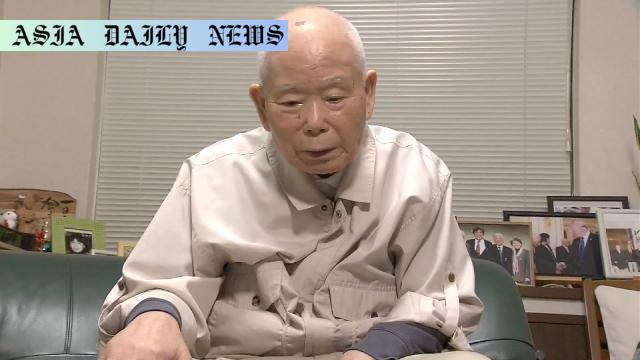Abduction: UN human rights official urges North Korea to resolve abduction issue involving citizens from Japan and other countries.
UN expressed sadness at the passing of Mr. Arimoto Akihiro.
UN urges North Korea to resolve abduction issues immediately.
Engagements continue with governments to resolve the crisis.

UN Calls Attention to Japanese Abduction Crisis
The death of Mr. Arimoto Akihiro, father of Japanese abductee Keiko Arimoto, has refocused global attention on the troubling issue of abductions conducted by North Korea over the decades. Akihiro fought tirelessly to shed light on his daughter’s disappearance and the countless others abducted by North Korea, bringing to the forefront the critical need for justice and accountability in such cases. His passing comes as both a somber reminder of the human tragedy associated with abductions and a revitalized call for action.
UN Efforts to Combat the Abduction Crisis
James Heenan, a representative of the UN Human Rights Office in Seoul, has reiterated the organization’s commitment to placing human rights and justice at the center of their discussions concerning abductees. In a recent statement following Akihiro’s passing, Heenan described his sadness and reaffirmed that the issue remains a priority for his team. The cases of Japanese abductees are only part of a broader crisis, with victims reportedly taken from South Korea, Japan, and other countries into North Korea’s grasp.
A Grim History of Disappearances
For decades, North Korea has been accused of abducting foreign nationals for espionage and other purposes. Families remain in limbo as victims have never returned or been accounted for. This issue gained new attention when the UN representative met with Japanese relatives of abductees in 2023. North Korea’s reluctance or failure to provide transparency on these kidnappings represents a severe breach of international human rights norms.
Concrete Steps Demanded from North Korea
The UN Human Rights Office has urged North Korea to immediately implement concrete measures to resolve abduction cases. These steps could include formally acknowledging responsibility, returning abductees to their home countries, or providing accurate information on their whereabouts and status. Without such measures, tensions between North Korea and impacted nations will likely persist, complicating diplomatic relationships beyond the abductions themselves.
The Role of International Collaboration
Beyond North Korea’s cooperation, a united effort among impacted nations and global bodies is crucial for resolving these cases. The continued engagement of organizations like the UN and support from governments, particularly Japan and South Korea, showcase the unwavering commitment to ensuring justice for abductees’ families. This crisis stands as a testament to the need for a collective global stand against state-sponsored human rights violations.
Extending Human Sympathy and Advocacy
The fight for justice and resolution in cases such as Keiko Arimoto’s reflects the human drive toward empathy, accountability, and closure. Families like the Arimotos have lived in the shadow of loss and uncertainty for years, exemplifying resilience in their advocacy. The passing of Akihiro Akimoto should not mark the end of this campaign but rather serve as an urgent reminder for the international community to persist in securing justice.
Conclusion
This devastating issue must not be allowed to fade into obscurity. Bringing accountability and closure to such cases is not just a matter relative to individual families but a necessary step for upholding international standards of human rights. Collectively, the global community has an imperative to call upon North Korea to amend past grievances and act decisively. Until then, the efforts of fighters like Mr. Akihiro Akimoto will remind the world of how crucial this mission remains.



Commentary
The Legacy of Akihiro Akimoto
The passing of Akihiro Akimoto deeply resonates, not just among those directly impacted by the North Korean abduction crisis but also with individuals worldwide who believe in justice and human rights. Akimoto lived a life dedicated to advocating for the return of the abducted, exemplifying what it means to turn personal tragedy into a cause for global good. His resilience inspires us to recognize the real human cost of inaction and the urgency for change.
The Abductions’ Lingering Shadow
These abduction cases continue to stand as a profound human rights tragedy. What makes this issue even more heartbreaking is the lack of closure for families who, like the Arimotos, are left in limbo. While the international community has made several attempts to address this issue, progress has often been stymied by North Korea’s silence and deflection. This ongoing crisis leaves one questioning to what extent governments, organizations, and ordinary citizens can unite to demand accountability.
Hope for the Future
Despite the challenges, there is hope. The UN’s continuous effort to prioritize the resolution of such abduction cases demonstrates that progress is achievable when global bodies champion the cause of human rights. North Korea has a moral and international obligation to acknowledge these atrocities. Additionally, the persistence of families, activists, and organizations ensures that the stories of abductees like Keiko Arimoto are never forgotten, maintaining momentum toward a well-deserved resolution.
Concluding Thoughts
The international community must view Akihiro Akimoto’s life and work as a beacon of determination in the face of overwhelming challenges. The issue of abductees is not just a Japanese or Korean concern but a global one. Every step forward is a step toward rectifying an egregious wrong, reaffirming – for humanity’s sake – that no person or family should endure such heartbreaking loss without answers.